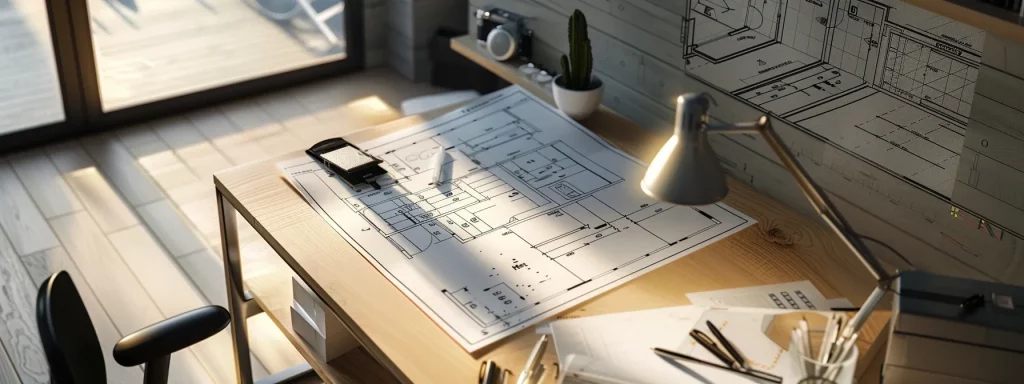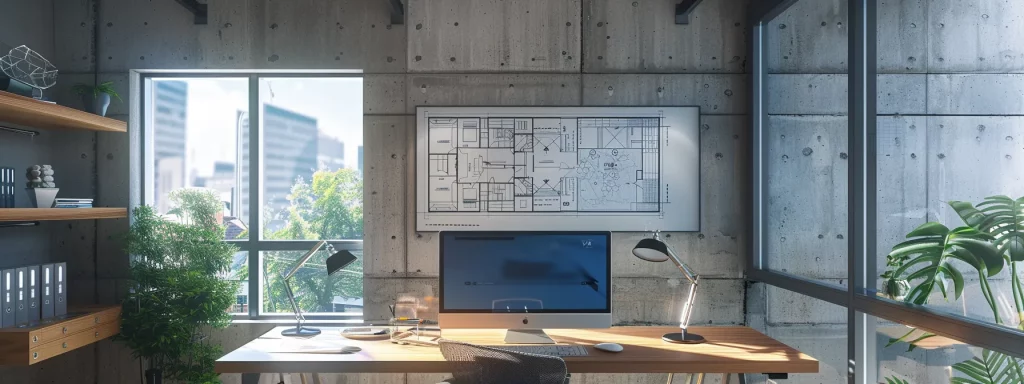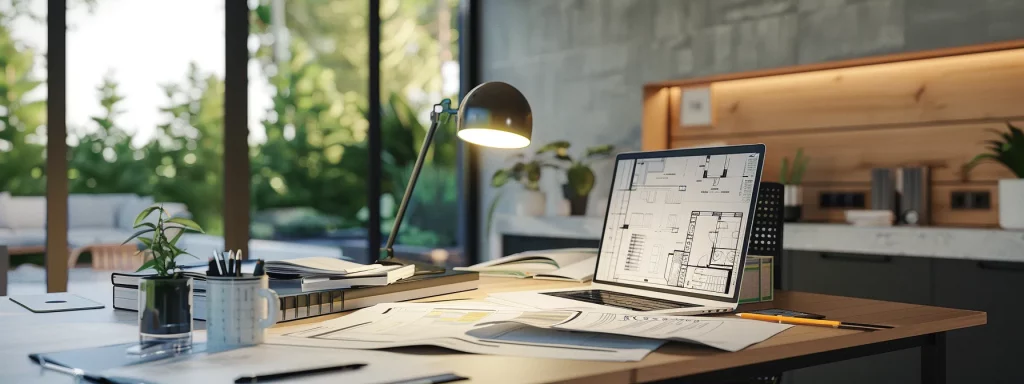Table Of Contents:
- Do You Need Planning Permission to Convert a Garage?
- Key Takeaways
- Understanding Planning Permission for Garage Conversions
- Do You Need Planning Permission to Convert Your Garage?
- Garage Conversion Planning Permission Requirements
- When Is Planning Permission Required?
- Exploring Permitted Development for Garage Conversions
- How to Apply for Garage Conversion Planning Permission
- Impact of Planning Permission on Property Value
- Frequently Asked Questions About Garage Conversion Permissions
- Frequently Asked Questions
- Conclusion
Do You Need Planning Permission to Convert a Garage?
Converting a garage can significantly enhance your property, but many homeowners are unsure about planning permission requirements. This article explores whether you need planning permission for a garage conversion, outlines the specific requirements, and guides you through the application process if necessary. By understanding the regulations and potential impact on property value, you’ll be better equipped to make informed decisions about your garage conversion project.
Key Takeaways
- Garage conversions often fall under permitted development rights, but local authority consultation is advised
- Internal alterations typically don’t require permission, but external changes may need approval
- Building regulations approval is essential for all garage conversions to ensure safety and efficiency
- The planning permission process usually takes 8-10 weeks but can vary based on project complexity
- Local authorities have varying requirements for garage conversions, reflecting regional planning policies and considerations
Understanding Planning Permission for Garage Conversions

Converting a garage into a habitable space often requires planning permission, especially if the property is a listed building. Homeowners should consult with an architect to determine whether their specific conversion plans fall under permitted development rights or necessitate formal approval.
While internal alterations typically don’t require planning permission, converting a garage into a bedroom or living area may impact the external appearance of the property. Building regulations approval is essential to ensure the conversion meets safety and energy efficiency standards.
Clear communication with local planning authorities is crucial when undertaking a garage conversion project. An experienced architect can facilitate this process, helping to navigate planning requirements and secure the necessary approvals for a successful conversion.
Do You Need Planning Permission to Convert Your Garage?

Converting a garage often falls under permitted development rights, meaning planning permission may not be necessary. However, homeowners should check with their local planning authority, especially if the property is in an Area of Outstanding Natural Beauty or if the conversion involves significant structural changes.
When considering the question “do I need planning permission for a garage conversion?”, it’s important to note that internal alterations typically don’t require permission. However, if the conversion affects the external appearance or changes the building’s use, planning approval may be needed.
Professional assistance from an architect or planner can be invaluable in navigating the planning process. They can advise on whether the proposed garage conversion requires permission and help ensure the new room meets building regulations, including proper insulation, ventilation, and electrical work overseen by a qualified plumber or electrician.
Garage Conversion Planning Permission Requirements

Converting a garage into living space often falls under permitted development rights, meaning planning permission may not be necessary for many house conversions. However, homeowners should consult their local planning authority’s advice centre to confirm specific requirements for their property.
Certain circumstances may require formal planning permission for a garage conversion. These include properties in conservation areas, listed buildings, or homes where permitted development rights have been removed. Homeowners can email their local planning office for guidance on their specific situation.
While internal alterations typically don’t require planning permission, changes affecting the external appearance of the house might necessitate approval. Building regulations approval is essential for all garage conversions to ensure compliance with safety and energy efficiency standards.
When Is Planning Permission Required?

Planning permission for garage conversions is often required in specific scenarios. Common situations necessitating consent include changes to external appearance, alterations in conservation areas, and modifications to listed buildings. Understanding these requirements is crucial for effective project planning, budgeting, and construction. Proper marketing of the converted space may also depend on obtaining the necessary permissions.
Common Scenarios Needing Permission for Conversions
Garage conversion planning often requires permission in scenarios that involve significant structural changes or impact the property’s external appearance. Homeowners should consult a tradesperson or architect to assess whether their project necessitates formal approval. For instance, altering the garage’s facade, adding new windows, or changing the roof structure may trigger the need for planning permission. To clarify requirements, property owners can email their local planning authority’s address, providing details about the proposed conversion, including plans for lighting and other modifications. While a fee may be associated with the application process, obtaining proper permissions ensures compliance and avoids potential legal issues.
Exploring Permitted Development for Garage Conversions

Permitted development rights often allow homeowners to convert their garage without formal planning permission. These rights typically cover internal alterations and minor external changes, enabling many home improvement projects to proceed smoothly. However, experts advise consulting local planning authorities to confirm specific requirements for each property.
While permitted development can facilitate garage conversions, certain limitations apply. For instance, alterations to the roof or changes that significantly impact the property’s appearance may require planning permission. Homeowners should consider how their conversion plans might affect the garden area and overall property aesthetics:
| Aspect | Permitted Development | Planning Permission Required |
|---|---|---|
| Internal alterations | Usually allowed | Rarely needed |
| Minor external changes | Often permitted | May be required for significant changes |
| Roof alterations | Limited scope | Often needed for major changes |
| Impact on garden | Minimal impact allowed | Required for substantial changes |
To ensure compliance with regulations, homeowners should gather comprehensive data about their property and proposed conversion. This information helps planning experts assess whether the project falls within permitted development or requires formal approval. By understanding these guidelines, property owners can proceed confidently with their garage conversion plans.
How to Apply for Garage Conversion Planning Permission

Applying for garage conversion planning permission typically involves submitting detailed plans to the local planning authority. These plans should include specifications for the new space, any changes to doors or windows, and considerations for drainage. Homeowners should consult the General Permitted Development Order to understand if their project falls within permitted development rights.
The application process requires a comprehensive set of documents, including architectural drawings, a site plan, and a description of proposed works. Applicants should clearly outline how the conversion will impact the property’s appearance and functionality. It’s advisable to engage a professional builder or architect to ensure all necessary information is included.
Once submitted, the local planning authority will review the application, considering factors such as the impact on neighbouring properties and compliance with local planning policies. The review process typically takes several weeks, during which time the authority may request additional information or clarifications. Applicants should be prepared to make adjustments to their plans if required by the planning officers.
Impact of Planning Permission on Property Value

Obtaining planning permission for a garage conversion can significantly impact property value. A properly approved conversion adds usable living space to the dwelling, potentially increasing its market worth. Homeowners should consider this potential value increase when weighing the costs of securing necessary permissions.
Conversions without proper planning permission may negatively affect property value and saleability. Prospective buyers and their solicitors often scrutinise planning records, and unauthorised alterations can complicate property transactions. Additionally, lack of proper approvals may affect home insurance coverage for the converted space.
Professional assistance from architects, builders, and electricians can ensure garage conversions meet all planning and building regulations. This compliance not only protects the property’s value but also enhances user experience and safety in the newly converted space. Properly documented approvals provide peace of mind for current and future property owners.
Frequently Asked Questions About Garage Conversion Permissions

This section addresses common queries about garage conversion permissions, covering topics from converting without permission to the consequences of non-compliance. It explores the duration of the planning process, variations in local authority requirements, and other essential regulations. Homeowners will gain insights into considerations such as ventilation, wall modifications, soundproofing, and fire safety measures for their garage or loft conversion projects.
Can You Convert a Garage Without Planning Permission?
Converting a garage without planning permission is possible in many cases, particularly for internal modifications. However, homeowners should carefully consider aspects such as plumbing, window installation, and garage door alterations before proceeding. While internal changes often fall under permitted development rights, significant external modifications or changes to the building’s use may require formal approval. Consulting with a design professional can help ensure compliance with local regulations and building codes:
| Aspect | Likely Permitted | May Require Permission |
|---|---|---|
| Internal alterations | Yes | No |
| Plumbing installation | Yes | No (but subject to building regulations) |
| Window addition | Depends on location | Possibly |
| Garage door removal | Often permitted | May require if significantly altering appearance |
| Change of use | No | Yes |
What Are the Consequences of Not Securing Permission?
Failing to secure necessary permissions for a garage conversion can lead to significant consequences. Local authorities may issue enforcement notices, requiring the homeowner to restore the garage to its original state, potentially involving the removal of flat roof modifications, underfloor heating systems, or newly installed brickwork. Additionally, unpermitted conversions can complicate future property sales, as buyers’ solicitors often scrutinise planning records, potentially affecting the property’s value and marketability.
How Long Does the Planning Permission Process Take?
The planning permission process for garage conversions typically takes between 8 to 10 weeks from submission to decision. This timeline can vary depending on factors such as the complexity of the project, whether the property is in a conservation area, and the local authority’s workload. Homeowners should consult an engineer early in the process to address structural concerns, particularly regarding concrete foundations. The planning authority may require additional information or site visits, which can extend the process:
| Stage | Estimated Duration |
|---|---|
| Pre-application consultation | 1-2 weeks |
| Application preparation | 2-3 weeks |
| Local authority review | 6-8 weeks |
| Decision issuance | 1-2 weeks |
Do Different Local Authorities Have Varying Requirements?
Local authorities across the UK often have varying requirements for garage conversions, reflecting differences in regional planning policies and local architectural considerations. These variations can impact aspects such as interior design, foundation requirements, and the addition of bathrooms or storey extensions. Homeowners should consult their specific local authority’s guidelines, as requirements may differ significantly between urban and rural areas, or in locations near parks or protected landscapes. Understanding these local nuances is crucial for a successful garage conversion project:
- Check local authority-specific guidelines for garage conversions
- Consider regional architectural styles and planning policies
- Assess impact on local amenities and protected areas
- Consult with local planning officers for tailored advice
- Review case studies of similar conversions in the area
What Other Regulations Must Be Considered?
When converting a garage, homeowners must consider several regulations beyond planning permission. Building regulations, which ensure safety and structural integrity, apply to all conversions regardless of planning requirements. Local authorities may have specific regulations concerning kitchen installations, particularly regarding ventilation and fire safety. Property owners should gather comprehensive information from their local authority about these regulations, as they can significantly impact the conversion process and final outcome.
What types of garage conversions typically require planning permission?
Garage conversions that typically require planning permission include those changing the external appearance, increasing the building’s footprint, or altering its use significantly. Conversions in conservation areas, listed buildings, or those exceeding permitted development rights also often need approval from local authorities.
How does permitted development apply to garage conversions?
Permitted development rights often allow garage conversions without planning permission, subject to certain conditions. These may include restrictions on size, external alterations, and use. However, specific rules can vary by location and property type, so it’s advisable to check with local authorities before proceeding.
What factors determine if planning permission is needed for a garage conversion?
Planning permission for garage conversions typically depends on the extent of structural changes, impact on exterior appearance, property location (e.g., conservation areas), and intended use. Local authority regulations and permitted development rights also play crucial roles in determining the need for formal approval.
How can I apply for planning permission to convert my garage?
To apply for planning permission to convert your garage, contact your local planning authority. Submit detailed plans, including proposed changes and intended use. Pay the required fee and provide any additional documentation requested. The process typically takes 8-12 weeks for a decision.
Will converting my garage without permission affect my property’s value?
Converting a garage without permission can negatively impact property value. Unauthorised conversions may lead to legal issues, potential fines, and difficulties when selling. Buyers often view unpermitted work as a liability, potentially reducing the property’s attractiveness and market value.
Conclusion
Determining whether planning permission is necessary for a garage conversion is crucial for homeowners to ensure compliance with local regulations and avoid potential legal issues. While many conversions fall under permitted development rights, specific circumstances such as significant external changes, alterations to listed buildings, or properties in conservation areas may require formal approval. Consulting with local planning authorities and professional architects can provide clarity on individual requirements and help navigate the application process if needed. Ultimately, securing proper permissions not only ensures legal compliance but also protects property value, enhances safety, and facilitates smoother property transactions in the future.
